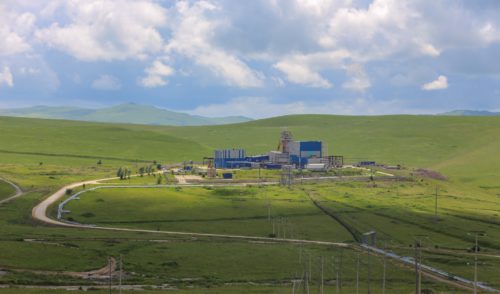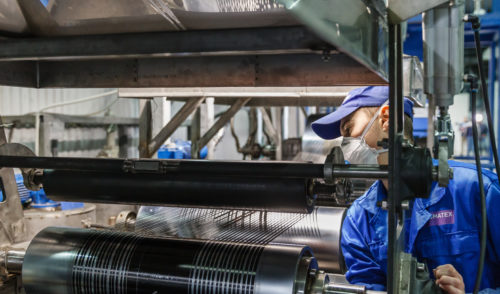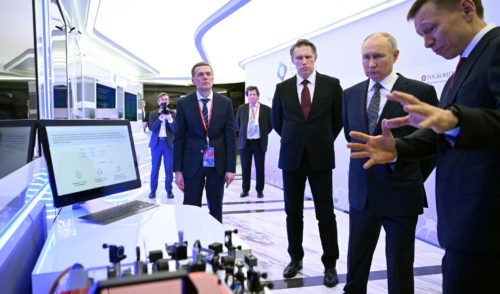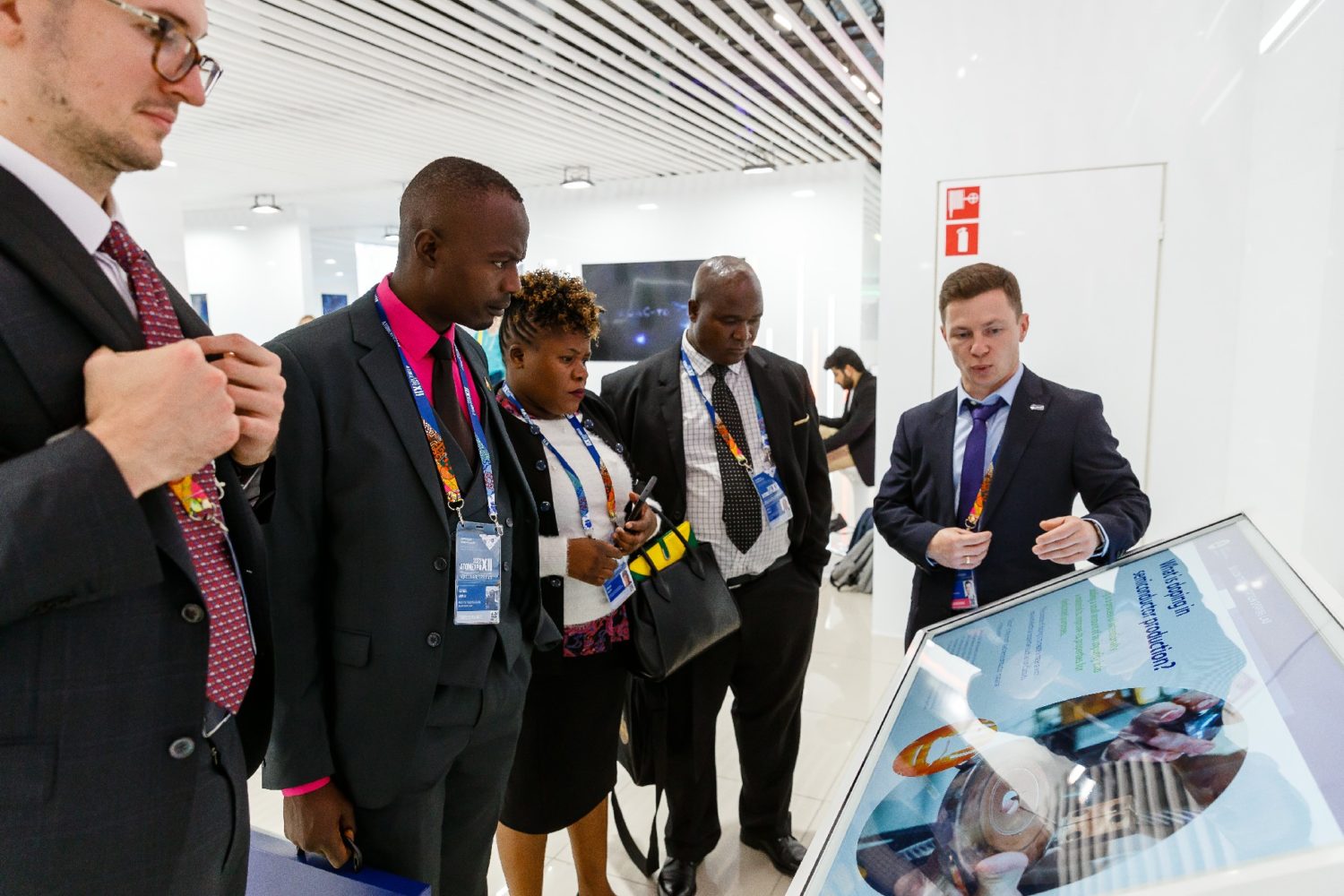
Knowledge Unites People
back to contentsNuLWAZI educational initiative could be launched in Africa with support from Rosatom to help people in the region learn more about peaceful applications of nuclear science and technology. Young leaders from different countries came up with this idea at Atomexpo 2022 International Forum held last autumn in Sochi, Russia.
“As a group of young professionals coming from different countries in Africa and meeting for the first time at Atomexpo 2022, we observed a trend running across the majority of our countries, that is, the lack of knowledge particularly about the peaceful applications of nuclear science and technology”, says Johnson Lorlornyo Abusah, one of the authors of NuLWAZI initiative, IAEA TC Fellow, and Executive Director at Ghana Young Generation in Nuclear.
While taking part in the Forum, young activists from the youth movements of Rosatom and the BRICS Youth Energy Agency (YEA) developed initiatives that can contribute to achieving the UN Sustainable Development Goals (SDGs). One of the four initiatives proposed was NuLWAZI. “NuLWAZI is a combination of Nu, an abbreviation for Nuclear, and the word uLwazi, which means ‘knowledge’ in the Nguni language spoken in South Africa. Hence, combining the two words we denote the transfer and sharing of knowledge on peaceful applications of nuclear science and technology across Africa”, Johnson Abusah explains.
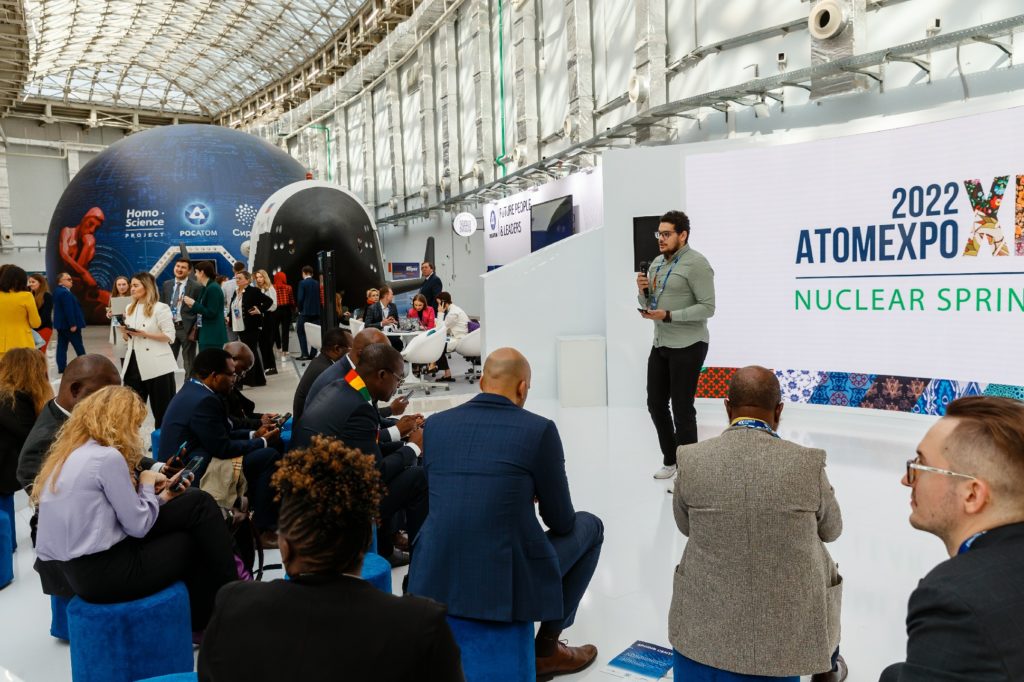
NuLWAZI is a platform that will facilitate an active exchange of knowledge about nuclear power and nuclear technology. According to experts, there is a need to strengthen knowledge at several levels in parallel:
- Local level: the knowledge possessed by older and younger generations and rural and urban residents is not the same;
- National level: some African countries are more advanced than their neighbors in the application of nuclear technology;
- Continental level: compared to other continents, Africa is underdeveloped in terms of nuclear power and radiation technology.
Few young people go for nuclear-related education because such education tracks are scarce. In order to raise awareness of nuclear technology at the local, national and continental levels, NuLWAZI will be implemented in stages.
Particular attention will be paid to the following topics:
- Radiation and sources of radiation,
- Peaceful applications of nuclear science and technology (agriculture, energy, industrial and medical applications),
- Nuclear safety, regulation and security in Africa,
- Environmental impact of nuclear activities in Africa,
- Economic and other benefits of industrialization, localization and skills development for long-term nuclear energy sustainability and development in Africa.
Plans include creating a consolidated community of experts and volunteers willing to participate in the initiative, and developing a pilot knowledge-sharing model.
“As part of preparations for an effective implementation of NuLWAZI, a partnership will be formed to create a platform that will be filled with information on all peaceful applications of nuclear science and technology across Africa. I believe this can serve as a valuable resource, for example, for the advocacy work by Africa4Nuclear. NuLWAZI will also provide access to a younger and wider audience as our major target group are high school students in high schools across Africa,” Johnson Abusah says.
A pilot platform can be built and tested by mid-2024 and then adjusted if necessary. Regular knowledge-sharing activities among the African youth will follow. If all the plans are implemented, the gap in nuclear power knowledge will be reduced by 30% in at least 10 countries on the continent by the end of 2030. The number of young people pursuing careers in nuclear will also increase.
“Furthermore, we also expect to create working relations between African nuclear professionals and young people to indirectly make them interested in adopting nuclear technology and innovation and improve nuclear infrastructure. We believe this will bring about economic and other benefits, such as industrialization, localization and skills development for long term nuclear energy sustainability and development in Africa”, Johnson Abusah notes.
Johnson Abusah, one of the authors of NuLWAZI initiative
We believe the youth are the next generation of leaders, educators, influencers and more, hence a thorough understanding of peaceful applications of nuclear science and technology at the early stages of their intellectual development will serve as a bedrock of future decision making and also produce a generation who are abreast with facts and understanding of the non-destructive benefits of innovative nuclear technologies. Moreover, this form of education will initiate early conversations on myths associated with nuclear science and technology, leading to fact finding and fact checking and a positive impact on the future narrative.


